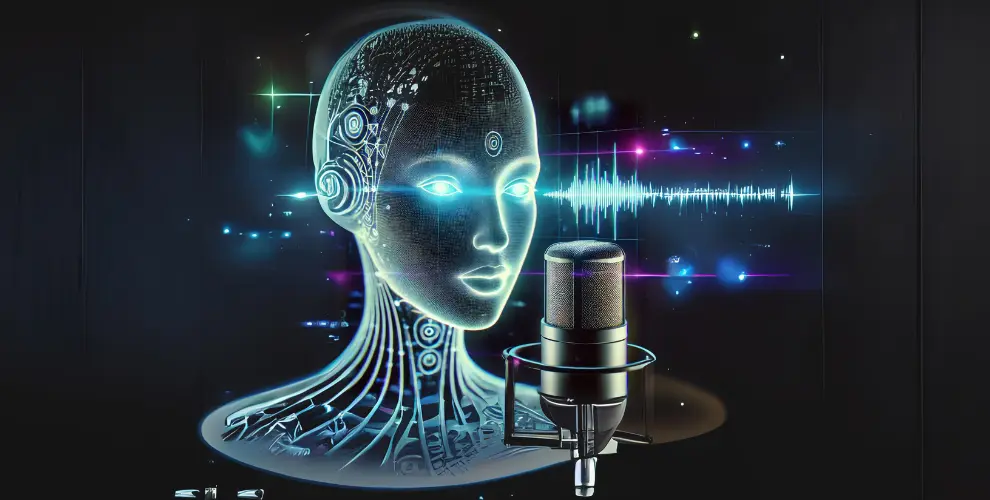
The Shocking Truth About Voice AI Technology
Table of Contents
Introduction
Welcome to WikiGlitz! In this in-depth analysis, we uncover the realities of Voice AI technology—from rapid advancements to ethical concerns, security risks, and its future impact. This technology is revolutionizing industries, but is it all positive? Let’s explore how artificial intelligence in voice recognition is affecting our daily lives.Key Takeaways
- Voice AI technology is evolving quickly, transforming healthcare, automotive, and customer service industries.
- Despite its benefits, security risks, ethical dilemmas, and voice cloning misuse remain major concerns.
- The future of Voice AI depends on regulations, ethical AI development, and robust security measures.
What is Voice AI Technology?
Voice AI technology enables artificial intelligence systems to process, interpret, and respond to human speech. It powers digital assistants like Alexa, Siri, and Google Assistant, allowing them to interact with users seamlessly.A Brief History of Voice AI
- 1952: The first speech recognition system, “Audrey,” is created by Bell Labs.
- 1990s: IBM introduces “ViaVoice,” a commercial speech recognition tool.
- 2010s: Apple’s Siri, Amazon Alexa, and Google Assistant popularize voice AI.
- 2020s: AI advancements in deep learning and neural networks enhance voice recognition accuracy.
How It Works
Speech Recognition: Converts spoken words into text. Natural Language Processing (NLP): Understands context and meaning. Response Generation: AI provides spoken or written replies. Continuous Learning: Machine learning algorithms enhance accuracy over time. Expert Insight Dr. John Simmons, AI researcher at MIT, states “Voice AI is revolutionising human-computer interaction by improving its intuitiveness. Advances in deep learning allow AI to grasp speech nuances, making assistants smarter.” Source: MIT AI ResearchWhat Are the Applications of Voice AI?
Voice AI is transforming industries worldwide- Customer Service: AI-powered chatbots reduce wait times and enhance customer interactions.
- Example: Amazon Alexa in E-Commerce—AI assistants help consumers with shopping recommendations.
- Healthcare: Used for medical transcription, hands-free documentation, and AI-driven diagnostics.
- According to American Medical Association, AI-driven voice analysis has improved diagnosis accuracy by 40%.
- Example: AI in Legal Transcription—automates court proceedings and document drafting.
- Finance & Banking: AI voice biometrics enhances security in transactions and fraud detection.
Ethical Concerns of Voice AI
Job Displacement: AI replaces customer service, legal transcription, and broadcasting jobs. Bias & Discrimination: AI struggles with non-native accents and gender biases. Voice Cloning & Deepfakes: Cybercriminals exploit AI-generated voice manipulation. Expert Insight Dr. Robert Klein, Cybersecurity Specialist “Utilising voice cloning technology improperly is a growing problem. Fraudsters now use AI to mimic voices for scams, making stronger security measures essential.” Source: UK Financial Conduct Authority Report Global Regulations: China has implemented strict AI voice policies to limit deepfake usage, while India is working on legislation to combat AI-driven misinformation and voice cloning fraud.Case Studies: Voice AI in Law Enforcement & Elections
Law Enforcement: AI is being used to analyze criminal calls, identify fraudsters, and provide real-time language translation for emergency services. Elections & Political Influence: AI-generated voices have been used to impersonate politicians, raising concerns over election security. Governments are enforcing stricter AI content authentication laws to prevent misinformation.Additional Expert Quotes from Industry Leaders
Dr. Anil Kapoor, AI Policy Analyst at PwC “The next decade will see AI voice recognition deeply integrated into governance, business, and security sectors. Regulatory frameworks need to evolve rapidly to mitigate risks.” Sophia Grant, AI Strategist at McKinsey “The economic impact of AI-driven voice assistants is projected to exceed $5 billion by 2030, with growth in automation, customer service, and legal tech sectors.” David Kim, Senior Researcher at Google AI “AI voice assistants are advancing towards emotional intelligence. The next frontier is AI recognizing and responding to human emotions in real time.”Summary
- Voice AI is transforming industries but raises ethical concerns.
- AI faces challenges with deepfake scams, job automation, and global regulatory issues.
- Governments push for stronger AI regulations to combat misinformation.
- Future developments include real-time voice translation, AI emotional intelligence, and increased security measures.
Pros & Cons of Voice AI
| Pros | Cons |
| Improves productivity | Privacy concerns |
| Assists disabled individuals | Deepfake fraud risks |
| Enhances customer service | Job automation |
FAQ How does Voice AI work?
Voice AI functions through- Speech Recognition: Converts spoken words into text.
- Natural Language Processing (NLP): Understands context and meaning.
- Response Generation: AI provides spoken or written replies.
- Continuous Learning: Machine learning enhances accuracy over time.
What industries use Voice AI?
Voice AI is widely used in- Customer Service: AI chatbots improve interactions and reduce wait times.
- Healthcare: Medical transcription, AI-driven diagnostics, and hands-free documentation.
- Finance & Banking: Voice biometrics enhance security and fraud detection.
What are the ethical concerns of Voice AI?
- Job Displacement: AI replaces roles in customer service, legal transcription, and broadcasting.
- Bias & Discrimination: AI may struggle with non-native accents and gender biases.
- Voice Cloning & Deepfakes: Fraudsters misuse AI-generated voices for scams.
Is Voice AI secure?
While Voice AI improves security through biometric authentication, it also poses risks like deepfake scams and data privacy concerns. Regulatory frameworks are being developed to combat misuse.How is Voice AI affecting elections and law enforcement?
- Law Enforcement: Used for fraud detection, criminal analysis, and emergency language translation.
- Elections: AI-generated voices have been misused to impersonate politicians, leading to stricter content authentication laws.
Want to keep up with our blog?
Our most valuable tips right inside your inbox, once per month.
WikiGlitz Team
Welcome to WikiGlitz, your ultimate destination for tech insights and innovation. Our expert team is dedicated to delivering free resources and professional advice on various technology topics, including Artificial Intelligence, Cyber Security, Cloud Computing, and more. We strive to empower our readers with up-to-date information and practical guidance, ensuring you stay ahead in the rapidly evolving tech landscape. At WikiGlitz, we are passionate about making complex technology accessible to everyone. Our team of seasoned experts curates content that is both informative and engaging, helping you understand and leverage the latest tech trends. Whether you're a tech enthusiast or a professional, WikiGlitz is your go-to source for reliable, expert-driven content. Join us on this journey to explore and embrace the future of technology.





